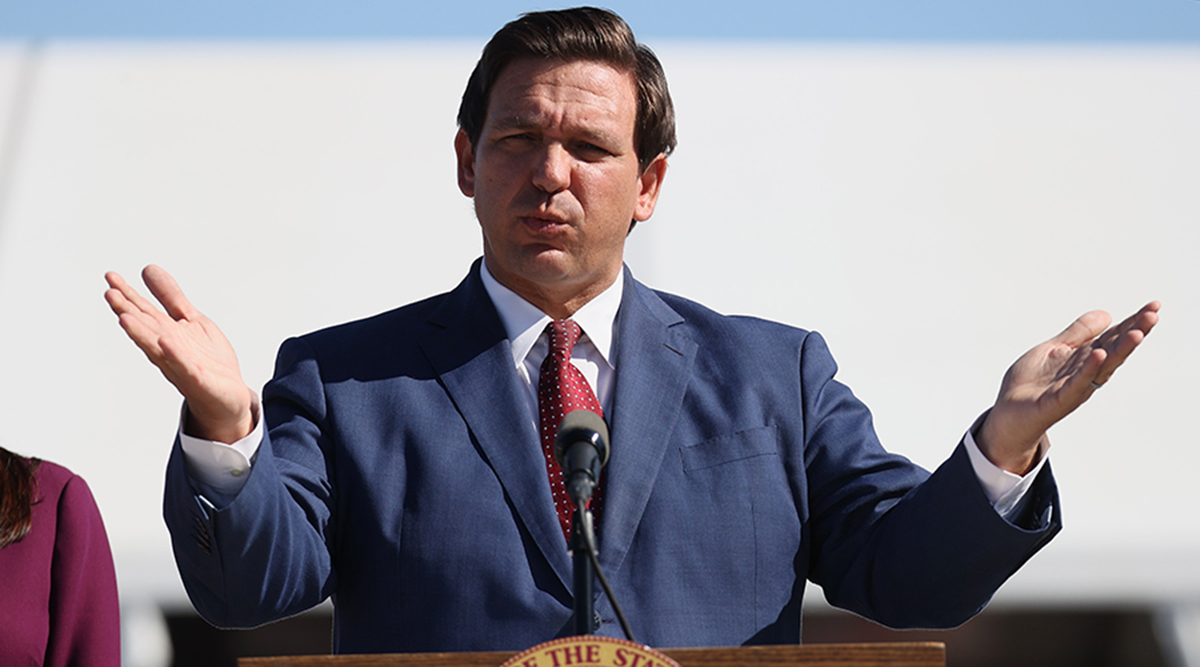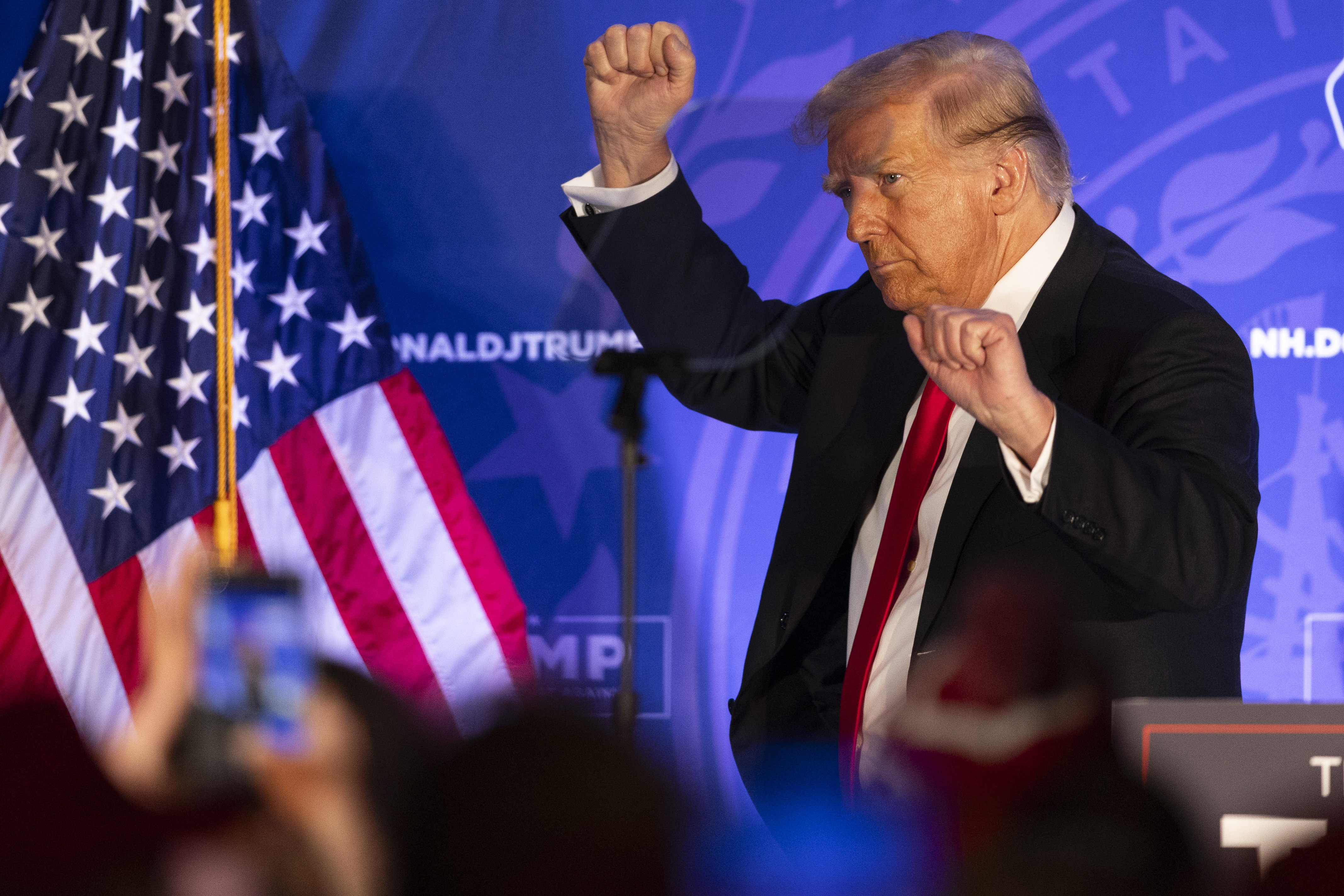
When New Hampshire voters cast their ballots in Tuesday’s first-in-the-nation primary, many will do so using scanners that are at least 15 years old — with some potentially dating back to Bill Clinton’s presidency.
Election experts say the aging AccuVote ballot tabulators in use across roughly half the state’s towns and cities don’t pose additional security risks. The concern is their age.
With a dwindling supply of replacement parts, breakdowns could create Election Day headaches for local election officials, who might be forced to count ballots by hand — a process that could delay reporting their results.
Malfunctions and ballot-counting delays in other states in recent years have sometimes been used to promote conspiracy theories that undermine public confidence in the vote, despite no evidence of any widespread problems with voting machines.
Get Boston local news, weather forecasts, lifestyle and entertainment stories to your inbox. Sign up for NBC Boston’s newsletters.
Franklin, a small city about 20 miles north of the state capital, has no wiggle room if something goes awry with its scanners.
“We have three machines and three polling places. That’s it, no backup,” said Olivia Zink, a member of the Franklin City Council who also is executive director of the voter advocacy group Coalition for Open Democracy. “If one goes down, we hand count.”
Zink, who will be working at her local polling place Tuesday, said she is less worried about hand counting even if turnout is robust among the 4,500 registered voters because the ballot contains only the presidential primary. She urged everyone to be patient if results are delayed. One potential glitch: If it’s snowy or rainy, damp ballots can mess up a ballot scanner.
“If it’s a sunny, beautiful day, we’re in great shape,” Zink said.

Reducing the chances of a major disruption is the ballot itself, with just a single race and a state requirement that the ballot counting to continue uninterrupted until finished. New Hampshire will hold primaries for state and local races later in the year.
All New Hampshire voters mark their ballot by hand, but how those ballots are counted depends on the city or town. Just under half opt to hand count and have done so for years, but those are among the least populated in the state.
The most populous towns and cities use machine tabulators, so most ballots cast in the state are counted electronically using the AccuVote scanners.
The same type of ballot scanners are used by local voting jurisdictions in five other states, according to Verified Voting, a nonpartisan group that tracks U.S. voting equipment.
“You could say it’s primitive technology. You could say it’s simple and reliable technology. Both of those things can be true,” said Mark Lindeman, the group’s policy and strategy director.
He said New Hampshire’s tabulators have been kept in good condition and that the biggest challenge for election officials is finding replacement parts. He sees the worst-case scenario as local election officials having to resort to hand counting because a tabulator has failed and they don’t have access to a backup.
“As worst cases go, that’s a pretty good one,” Lindeman said. “The ballots are safe. This will not prevent New Hampshire voters from voting or prevent New Hampshire voters from having their votes counted.”
Even so, any problems with voting machines or ballot counting devices provide an opening for those who want to cast doubt on the outcome. Former President Donald Trump, who won this week’s Iowa caucuses but faces a potentially tougher test in New Hampshire, regularly signals that an anticipated close election will be “rigged.”
His false claims about widespread fraud in the 2020 election, which he lost to Joe Biden, has produced a tsunami of conspiracy theories about voting machines.
“If there are major failures and results come really late, and if there is not information ahead of time to the public that we might be hand-counting and what that involves — in a worst-case scenario the vacuum that leaves could allow folks to come forward with conspiracy theories and question what the results are,” said McKenzie St. Germain with the voter advocacy group America Votes NH.
In Derry, south of Manchester, Town Clerk Tina Guilford tested her eight tabulators this week to ensure they were working properly and counting ballots correctly. It’s a process being repeated across the state as local election officials prepare for the primary.
Derry’s tabulators are roughly turn-of-the-century technology — each about 20 to 22 years old, Guilford said. The town agreed to buy replacements that officials hope will be in place by March when new tabulators will be certified for use in the state.
Derry, with its nearly 20,000 registered voters, doesn’t need all eight AccuVote scanners running at the same time, so they have options if one were to be taken out of service, Guilford said. It has happened before, when hand sanitizer gummed up a machine in 2020 during the pandemic.
“I don’t foresee any issues,” she said.
Secretary of State David Scanlan, New Hampshire’s top election official, said he has been encouraging local officials to make sure they have enough staff to handle any hand counting that may be necessary.
It’s expected that every jurisdiction will have to count some ballots by hand given Biden’s decision to skip the state’s primary in favor of a revamped Democratic schedule that elevated South Carolina over Iowa and New Hampshire. That has prompted a write-in campaign for him, and any ballots with write-in candidates will have to be tallied by hand.
In recent years, hand counting has gained favor among those pushing conspiracy theories about the 2020 election as they seek to ban voting machines and electronic tabulators. While hand counting is used in some parts of the country, it usually occurs in small jurisdictions where the process is manageable.
Last year, New Hampshire lawmakers rejected a proposal that would have required all votes to be counted by hand.
Experts say not only are machines faster, but studies have shown they are more accurate. Many election officials do rely on some measure of hand counting as part of their post-election process to verify that the machines worked correctly.
Scanlan said he has been encouraging voters to understand that it’s not unusual for some machines to have problems and stressed that election officials have plans to deal with it, even if it means a delay in releasing results.
“That just happens in any election,” he said. “I would expect that this election is going to be no different than any other election we’ve conducted in the past.”




